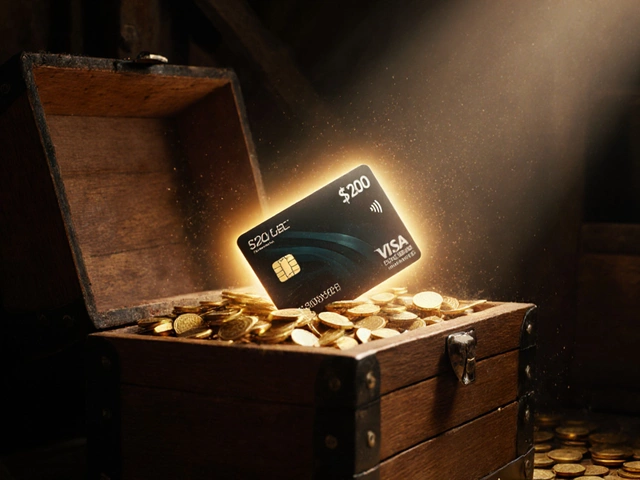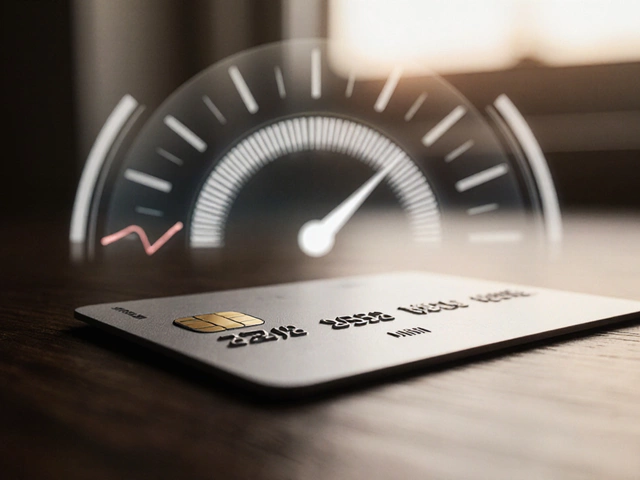
Thinking about how many credit cards you should have? It's one of those questions that doesn't have a one-size-fits-all answer. Your ideal number depends on your spending habits, financial goals, and even a bit of your personality.
Before diving into the pros and cons of holding multiple cards, let's go over the basics. Most folks know that having at least one credit card can be beneficial. It helps build your credit history if you use it wisely. But what happens when you get to two, three, or even five cards?
Too many cards might seem risky. It can feel overwhelming to manage so many payments and due dates. Plus, there's the temptation to spend more than you can pay back. However, strategic use of multiple cards can offer benefits like multiple reward points and enhanced credit limits, as long as you pay off the balances promptly.
- Understanding Credit Card Basics
- Impact on Your Credit Score
- Benefits and Risks of Multiple Cards
- Tips for Managing Multiple Cards
Understanding Credit Card Basics
Let's start off with the fundamentals of credit cards. These little plastic wonders are more than just a way to defer payments—they're a big player in your financial health. When used right, a credit card can boost your credit score and offer perks like cashback or travel rewards. But to reap the benefits, you need to know how they work.
How Credit Cards Affect Your Credit Score
Your credit score hinges on various factors, and credit cards play a key role here. One of the big ones is your credit utilization ratio. This is the amount of credit you're using relative to your overall credit limit, ideally kept under 30%.
Payment history is crucial, too. Every time you make a payment on time, you're building a solid credit history. But missing payments or maxing out your cards can hurt your score.
The Basics of Interest and Fees
Each credit card has an interest rate known as APR (Annual Percentage Rate). If you're not wiping out your balance monthly, this is what you'll be charged on. Plus, many cards come with fees like annual fees or late payment fees. It's important to weigh these costs against the rewards or benefits offered.
Types of Credit Cards
- Standard credit cards: These are your everyday cards that let you pay off charges over time.
- Rewards credit cards: You earn points or cashback on purchases.
- Secured credit cards: Good for building or rebuilding credit, backed by a cash deposit.
- Balance transfer cards: Offer low or no interest on transferred balances for a period.
In essence, understanding these basics sets the stage for figuring out how many credit cards you might want or need. Keep these factors in mind as you consider opening new accounts or maintaining existing ones.
Impact on Your Credit Score
Let's break down how having multiple credit cards can affect your credit score. It's pretty important to understand these details because your credit score acts as a snapshot of your financial health.
Credit Utilization Ratio
This is a biggie. Your credit utilization ratio is the amount of credit you're using compared to how much you have available. Experts recommend keeping it below 30%. If you have several credit cards and manage to keep low balances on them, this can work in your favor by potentially lowering your credit utilization. Imagine having two cards with a $1,000 limit each; if you're using $300 on one and nothing on the second, you're right at that sweet spot.
Number of Hard Inquiries
While opening a new card can help boost your credit limits, each application results in a hard inquiry. A few of these aren't a big deal, but they can add up. According to a report from Experian, having several hard inquiries in a short period might temporarily ding your credit score.
Length of Credit History
Another factor that might surprise you is the length of your credit history, which makes up 15% of your credit score. Having more cards means you might maintain some older accounts alongside new ones, positively affecting your average account age, as long as you don't close your oldest card.
“Building a healthy credit score is all about balance. Maintaining a variety of credit accounts pays off, as long as you manage them responsibly.” – Jane Thompson, Financial Advisor at Smart Money Group
Alternating Payment Patterns
If used correctly, having multiple cards allows for alternating payment schedules, which could better suit your cash flow. But, missing payments on any card can really hurt your score, turning what could be a financial boon into a bust.
Ultimately, more cards mean more responsibility, but they can provide flexibility and perks if managed smartly. Keep tabs on your spending, make timely payments, and use your credit cards to build, not break, your financial standing.

Benefits and Risks of Multiple Cards
Owning several credit cards might sound a bit daunting, but there are some clear advantages if you manage them right. One big benefit is the potential for earning more rewards. Each card often has its own set of perks – from cash back and travel points to special discounts. So, spreading out your purchases across cards with different reward categories can really add up to savings over time.
Another perk? Having multiple cards can increase your total available credit, which might improve your credit score if you're smart about it. When you keep your balances low relative to your limit, your credit utilization ratio gets a boost – that's a win for most scoring models.
But hold on, it's not all sunshine. There are risks involved. Juggling several cards means tracking numerous due dates and minimum payments. Miss one, and you could be staring at late fees and a dinged credit score. Plus, having more cards can tempt even the best of us to overspend. It's easy to lose track when it's a tap away, right?
Potential for Debt
If you're not careful, multiple cards can also mean multiple debts. Interest rates add up quickly, especially if you're only paying the minimum each month. This could snowball into a financial burden that's tough to shake off.
How to Manage
- Stay organized with a budget. Write down due dates and set reminders to avoid late fees.
- Consider using apps or tools to track all your expenses in one place.
- Keep an eye on your credit utilization ratio by keeping balances low.
- Prioritize paying off high-interest cards first to save on costs.
Using multiple credit cards needs balance. It's all about playing it smart – leveraging the benefits while keeping tabs on the risks.
Tips for Managing Multiple Cards
Juggling several credit cards doesn't have to be daunting. Here are some practical tips to keep things under control without feeling overwhelmed.
Set Payment Reminders
Using multiple credit cards means keeping track of multiple due dates. The last thing you want is missed payments dinging your credit score. Set up automatic alerts on your phone or email to remind you when payments are due.
Organize Your Card Use
Each card may offer different benefits. One card might give you more rewards on groceries, while another offers cash back on gas purchases. Know your cards' strengths and use them strategically to maximize benefits and savings.
Keep an Eye on Your Credit Utilization
This might sound technical, but it's just about making sure you're not using too much of your available credit. A good rule of thumb is to keep your usage below 30%. This helps maintain a healthy credit score.
Pay Off Balances in Full
Avoid the interest trap by making sure you pay off your balance each month. High-interest rates can quickly turn into significant debt if you're not careful. If paying all at once is tricky, focus on cards with the highest interest rates first.
Review Your Statements Regularly
Regularly checking your statements can help catch any fraudulent activities early. Plus, it's a good way to stay on top of your spending habits and adjust if needed.
Limit New Card Applications
Applying for too many cards at once can negatively impact your credit score. Be selective and apply only when it strategically benefits your financial situation.
Consider a Consolidation Plan
If managing multiple cards starts to feel overwhelming, consider a consolidation plan. This could mean combining balances onto a single lower-rate card or using a personal loan to streamline payments.
Useful Stats
Sometimes numbers make things clearer. Check out this average data to keep in mind:
| Aspect | Average Rate |
|---|---|
| Annual Fees | $95 |
| Cashback Rewards | 1-5% |
| Average Credit Card APR | 16.5% |
These tips should help you effectively manage your cards without feeling stressed. Remember, credit cards can be powerful tools if used carefully. Happy juggling!








Write a comment